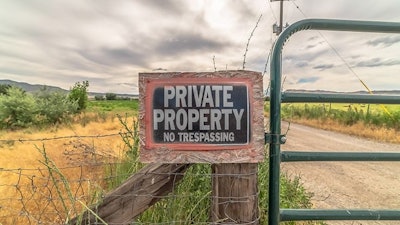
According to security experts, hemp farmers who face potentially devastating theft or seizure of their crops have several tools at their disposal to protect their investment. Those tools include cooperative security agreements with fellow growers, relationships with local law enforcement and cost-effective security equipment.
Hemp growers, many of whom have small profit margins to begin with are in danger of losing their crops to either theft or seizure due to it being mistaken for marijuana, Stefano says. Because hemp looks like marijuana, thieves will try to take it from your fields, says Jade Stefano, co-founder and CEO of Puffin Farm. Beyond thieves just spotting the crops and recognizing them as cannabis, some state agencies, including in Washington state where the company is located, publish hemp farm locations on their websites, making them easier to target, she adds.
Law enforcement also mistakes hemp for marijuana, Stefano says, leading to raids of farmer's property and damage to the crops. By the time the police are alerted to the mistake, the damage may be done. For example, there have been instances where the police have severely damaged crops during the raid and seizure, she adds.
Such issues can economically devastate a grower, Stefano says. "A smaller grower could certainly get wiped out with a single night raid. Smaller businesses really get the brunt of the cost and the damages," as they have the expenses of complying with regulations with much less product.
Many times, these tight profit margins lead smaller growers to avoid implementing security measures, says Ryan Schonfeld, founder and president of RAS Consulting and Investigations, a security consulting firm. "We're seeing a lot of growers sort of gambling and not securing their sites, and their product, as well as they'd like to just because their margins are a lot lower than they had expected," he says.
However, there are cost-effective ways to secure your investment.
Securing Your Investment
Both Stefano and Schonfeld agree that it is essential to develop a relationship with local law enforcement. Building a friendly relationship serves two purposes. First, it lets the police know that the grower is cultivating a legal crop, heading off any raids. An established relationship can also result in law enforcement being at the property more often and responding more quickly to problems, which bolsters security.
"Make friends with your local police. Make your property a place they want to visit because it's essentially free security whenever they're there," Schonfeld says. As a former police officer, he says that having a fresh pot of coffee brewed and clean bathrooms available to use while on duty will be appreciated and lead law enforcement to be around more often.
Leveraging shared security services is another essential strategy for hemp growers because it dramatically lowers the costs involved, Schonfeld says. "The cost for security guards, technology … is so high that it becomes prohibitive," he says. The answer is for several growers to pool their funds to purchase and share these services.
While this does not negate the initial investment in equipment, such as motion sensors and cameras, it lowers the cost of effectively using these tools. While a motion detector may pick up an intruder, having a 24-hour guard in place to follow up can cost $150,000 per year, and many farmers may need to employ more than one guard at a time. Instead of a single grower shouldering this cost, several farms can share the service and have guards patrolling their properties.
This "neighborhood watch" approach is much more cost-effective, Schonfeld says, as his firm's research shows that farms can recoup their initial capital expenses in less than three months due to the saved monitoring costs.
Another benefit comes from sharing data, he says. Monitoring systems, such as motion detectors and security cameras, become more accurate as they obtain information about false positives, such as deer crossing into the property, Schonfeld says. The equipment's algorithms develop more quickly by various growers pooling their data on false positives, leading to greater accuracy. His firm's research has found that improving detection algorithms can reduce false positives by as much as 80%.
The reduction of false positives not only reduces wasted time and effort on the part of a grower's security team, but also prevents the kind of repeated false alarms that can become a nuisance to police, he adds. The more the police come out to investigate what turns out to be a false alarm, the slower their response will become, and the more fines you may accrue. And, after a while, some police departments may stop responding altogether, Schonfeld says.
Some security experts recommend that hemp growers invest in perimeter sensors, cameras and possibly drones. "One of the biggest problems we see at the outdoor facilities is the lack of infrastructure," he says.
Tim Sutton, the senior security consultant security expert for Guidepost Solutions, agrees, arguing that "you build your defenses from the outside in, always." And "the earlier you're able to detect, the better," as this provides more advance notice and time to react.
Perimeter sensors need to be backed up by cameras to identify the intruders, Sutton and Schonfeld say, adding that there are two types of cameras that growers should invest in: a conventional camera in the daytime and a thermal imaging camera at night. Thermal cameras are potentially more critical, as "most thieves operate under cover of night," Sutton says.
Both experts also recommend that growers consider drones with thermal imaging capability to save costs. "The upfront capital cost for each property is lower because you've got the drone doing the thermal surveillance at night, rather than each property installing their own," Schonfeld says.
Finally, Sutton recommends that each grower develops both a security management and security operations plan. These plans guide how best to use your equipment to secure your crops, providing a broad overview of security plans and standard operating procedures to implement them effectively. He says these plans are unique to each grower given the individual characteristics of their property and their operations.
























